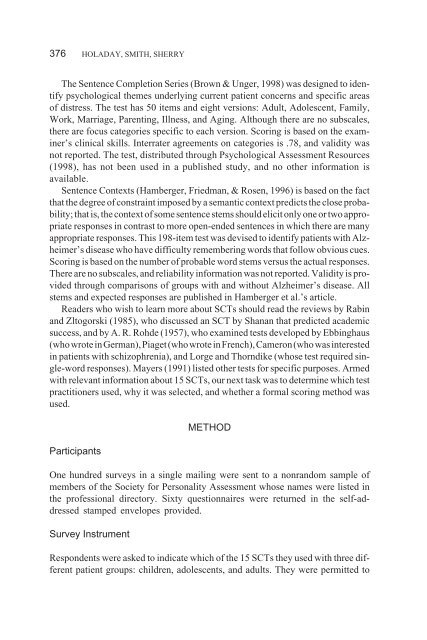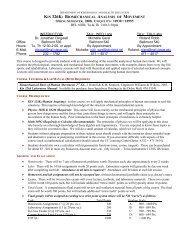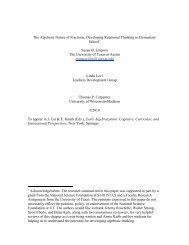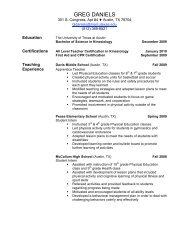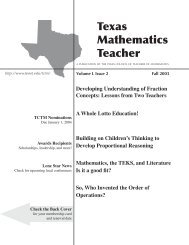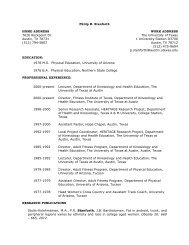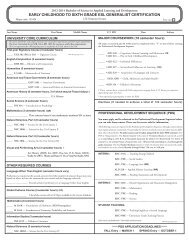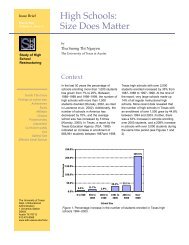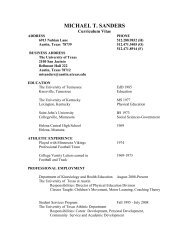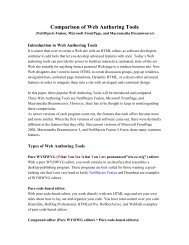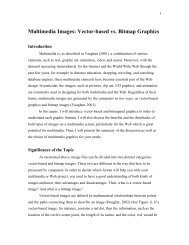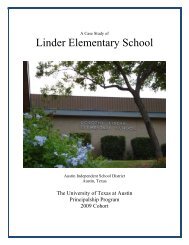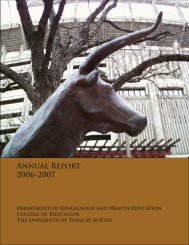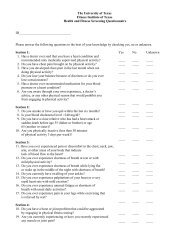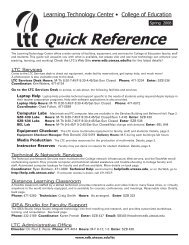Sentence Completion Tests: A Review of the Literature and Results ...
Sentence Completion Tests: A Review of the Literature and Results ...
Sentence Completion Tests: A Review of the Literature and Results ...
Create successful ePaper yourself
Turn your PDF publications into a flip-book with our unique Google optimized e-Paper software.
376 HOLADAY, SMITH, SHERRY<br />
The <strong>Sentence</strong> <strong>Completion</strong> Series (Brown & Unger, 1998) was designed to identify<br />
psychological <strong>the</strong>mes underlying current patient concerns <strong>and</strong> specific areas<br />
<strong>of</strong> distress. The test has 50 items <strong>and</strong> eight versions: Adult, Adolescent, Family,<br />
Work, Marriage, Parenting, Illness, <strong>and</strong> Aging. Although <strong>the</strong>re are no subscales,<br />
<strong>the</strong>re are focus categories specific to each version. Scoring is based on <strong>the</strong> examiner’s<br />
clinical skills. Interrater agreements on categories is .78, <strong>and</strong> validity was<br />
not reported. The test, distributed through Psychological Assessment Resources<br />
(1998), has not been used in a published study, <strong>and</strong> no o<strong>the</strong>r information is<br />
available.<br />
<strong>Sentence</strong> Contexts (Hamberger, Friedman, & Rosen, 1996) is based on <strong>the</strong> fact<br />
that <strong>the</strong> degree <strong>of</strong> constraint imposed by a semantic context predicts <strong>the</strong> close probability;<br />
that is, <strong>the</strong> context <strong>of</strong> some sentence stems should elicit only one or two appropriate<br />
responses in contrast to more open-ended sentences in which <strong>the</strong>re are many<br />
appropriate responses. This 198-item test was devised to identify patients with Alzheimer’s<br />
disease who have difficulty remembering words that follow obvious cues.<br />
Scoring is based on <strong>the</strong> number <strong>of</strong> probable word stems versus <strong>the</strong> actual responses.<br />
There are no subscales, <strong>and</strong> reliability information was not reported. Validity is provided<br />
through comparisons <strong>of</strong> groups with <strong>and</strong> without Alzheimer’s disease. All<br />
stems <strong>and</strong> expected responses are published in Hamberger et al.’s article.<br />
Readers who wish to learn more about SCTs should read <strong>the</strong> reviews by Rabin<br />
<strong>and</strong> Zltogorski (1985), who discussed an SCT by Shanan that predicted academic<br />
success, <strong>and</strong> by A. R. Rohde (1957), who examined tests developed by Ebbinghaus<br />
(whowroteinGerman),Piaget(whowroteinFrench),Cameron(whowasinterested<br />
in patients with schizophrenia), <strong>and</strong> Lorge <strong>and</strong> Thorndike (whose test required single-word<br />
responses). Mayers (1991) listed o<strong>the</strong>r tests for specific purposes. Armed<br />
with relevant information about 15 SCTs, our next task was to determine which test<br />
practitioners used, why it was selected, <strong>and</strong> whe<strong>the</strong>r a formal scoring method was<br />
used.<br />
Participants<br />
METHOD<br />
One hundred surveys in a single mailing were sent to a nonr<strong>and</strong>om sample <strong>of</strong><br />
members <strong>of</strong> <strong>the</strong> Society for Personality Assessment whose names were listed in<br />
<strong>the</strong> pr<strong>of</strong>essional directory. Sixty questionnaires were returned in <strong>the</strong> self-addressed<br />
stamped envelopes provided.<br />
Survey Instrument<br />
Respondents were asked to indicate which <strong>of</strong> <strong>the</strong> 15 SCTs <strong>the</strong>y used with three different<br />
patient groups: children, adolescents, <strong>and</strong> adults. They were permitted to


